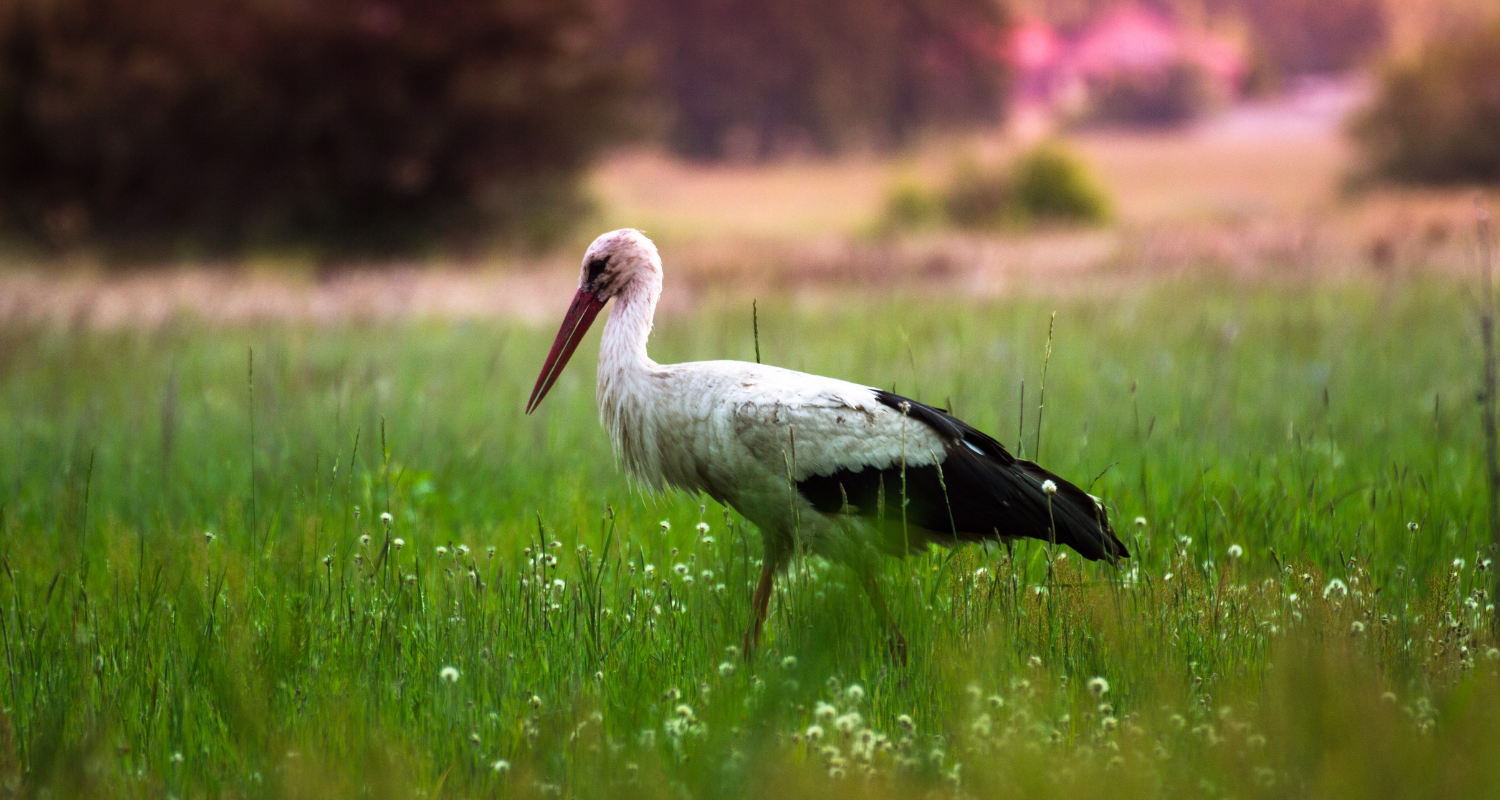
Stork Symbolism and Meaning as Spirit, Totem, and Power Animal
The stork, an elegant and graceful bird, holds profound symbolism and spiritual meaning across various cultures worldwide. Known for its nurturing instincts and long migrations, the stork symbolizes new beginnings, devotion, and endurance.
In Western cultures, the stork is famously associated with childbirth. This stems from Greek and Roman mythology, where it was believed that storks delivered babies to households. The stork's careful tending to its young has thus made it a symbol of parental love, care, and the heralding of new life.
In Chinese culture, the stork is revered as a symbol of longevity and good luck. Its long lifespan and regal bearing are seen as embodiments of wisdom and nobility. The stork's harmonious existence with nature makes it a symbol of peace and tranquility.
In ancient Egypt, the stork was associated with Ba, the aspect of a person's soul that would continue to live in the afterlife, therefore symbolizing transition, renewal, and rebirth.
On a wider spiritual level, the stork represents resilience and adaptability. Its long migratory journeys symbolize endurance and the ability to embark on life-changing journeys. The stork encourages us to be resilient in the face of obstacles and to embrace change as an opportunity for growth.
In modern interpretations, the stork symbolizes new beginnings, devotion, and endurance. It inspires individuals to nurture their dreams, to show devotion in their relationships, and to persevere through life's challenges.
The symbolism of the stork is a powerful reminder of our capacity for love, our endurance in the face of adversity, and our ability to welcome new beginnings. It invites us to nurture our dreams, show devotion in our relationships, and embrace life's journeys with resilience and grace.
With its graceful flight and nurturing nature, the stork continues to inspire with its profound spiritual symbolism.
In Western cultures, the stork is famously associated with childbirth. This stems from Greek and Roman mythology, where it was believed that storks delivered babies to households. The stork's careful tending to its young has thus made it a symbol of parental love, care, and the heralding of new life.
In Chinese culture, the stork is revered as a symbol of longevity and good luck. Its long lifespan and regal bearing are seen as embodiments of wisdom and nobility. The stork's harmonious existence with nature makes it a symbol of peace and tranquility.
In ancient Egypt, the stork was associated with Ba, the aspect of a person's soul that would continue to live in the afterlife, therefore symbolizing transition, renewal, and rebirth.
On a wider spiritual level, the stork represents resilience and adaptability. Its long migratory journeys symbolize endurance and the ability to embark on life-changing journeys. The stork encourages us to be resilient in the face of obstacles and to embrace change as an opportunity for growth.
In modern interpretations, the stork symbolizes new beginnings, devotion, and endurance. It inspires individuals to nurture their dreams, to show devotion in their relationships, and to persevere through life's challenges.
The symbolism of the stork is a powerful reminder of our capacity for love, our endurance in the face of adversity, and our ability to welcome new beginnings. It invites us to nurture our dreams, show devotion in our relationships, and embrace life's journeys with resilience and grace.
With its graceful flight and nurturing nature, the stork continues to inspire with its profound spiritual symbolism.

1 comment
yes, stork in sobriety is healing and recovery reminding me the work is already done nineteen years sober stork carried me like a baby delivered to new life in a new day one day at a time thank you stork
Levity
Leave a comment
This site is protected by hCaptcha and the hCaptcha Privacy Policy and Terms of Service apply.